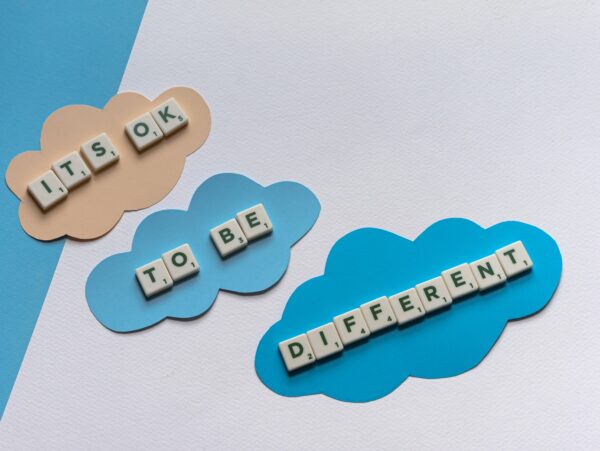Research shows that about 20% of the human population is neurodivergent. That isn’t a small number—you probably know several people either at home, at work, or in your social circles who are neurodivergent.
When it comes to the workplace, employers should set neurodiversity hiring goals and find ways to reach them. Neurodiverse individuals deserve every chance at success, and it’s important they receive the support they need every step of the way.
Keep reading to learn more about what neurodiversity is, the strengths of neurodiverse employees, and how to deliver a hiring process that attracts neurodiverse talent and meets their unique needs.
What is neurodivergence?
Neurodivergence means that someone’s brain works differently than others do. Neurodivergence is not a medical diagnosis, but an umbrella term that includes a range of varying cognitive functions.
Cognitive function is usually measured by milestones set by society and medicine. For instance,many infants can recognize faces at several months old and respond to their names around nine months. Individuals who don’t meet these established milestones may be considered neurodivergent. People who regularly meet these milestones and societal standards are often referred to as “neurotypical.”
Recognizing neurodiverse individuals
There’s no one definition for how a “normal” brain works. Everyone thinks, learns, and behaves in their own distinct way. However, neurodivergent people experience, interpret, and engage with their surroundings differently than “neurotypical” individuals do.
Sometimes neurodivergent people struggle with soft skills or social interactions, like public speaking or interpreting others’ emotions. They might be challenged by environments where their senses are overwhelmed by sound, light, smells, pain, or touch. Allowing accommodations for neurodiverse people, like offering noise-canceling headphones, helps them adapt to their environment.
While neurodiverse people may develop adaptive habits, take advantage of accommodations, or seek medical treatment, it’s important to note that differences are not weaknesses. In fact, many neurodivergent individuals’ differences can be considered strengths! Their focus, attention to detail, and problem-solving skills are a value-add to any organization.
Neurodivergent conditions workplaces should be aware of
Neurodivergence encompasses various abilities and medical diagnoses. The following list is not exhaustive, but a good place to start learning more about the different conditions seen in neurodivergent adults.
Autism Spectrum Disorder (ASD)
ASD is a developmental condition that impacts communication and social interactions. Autistic people may exhibit repetitive behaviors and often have specific interests. As a spectrum disorder, there is a wide range of ASD symptoms and severity.
Attention Deficit Hyperactivity Disorder (ADHD)
Individuals with ADHD exhibit periods of inattention, hyperactivity, and/or impulsivity. This means that people with ADHD might struggle to stay focused on tasks, fidget, or have trouble with self-control. These behaviors interfere with life at home and work.
Dyslexia
Dyslexia is a learning disability where someone’s brain has trouble processing text. People with dyslexia struggle with word recognition, spelling, and reading comprehension. There are different forms of dyslexia. Some see nonexistent movement while reading, some perceive letters as rotated, and others see letters jumbled into other words.
Social Anxiety Disorder
Social anxiety disorder is more than feeling nervous about new social experiences. It is considered a serious phobia. Someone with a social anxiety disorder has significant feelings of self-consciousness that interfere with everyday interactions. It can lead to avoidance and get in the way of work, life, or relationships.
Tourette Syndrome
People with Tourette syndrome experience nervous system “hiccups” also known as tics. Sometimes people can subdue their tics for short periods, but this is very difficult. Tics can be classified as motor or vocal. Motor tics are movements of the body, like shrugging or jerking arms. Vocal tics are sounds like humming, yelling phrases, or whistling.
Bipolar Disorder
Bipolar disorder is a mental illness that causes shifts in mood, energy, activity level, and concentration. People with bipolar disorder experience periods of depression as well as periods of excessive activity known as “manic” episodes. These periods of low activity and high activity can range in severity.
Obsessive-Compulsive Disorder (OCD)
Obsessions are defined as uncontrollable and recurring thoughts. An example of this might be an extreme fear of dirt or germs. Compulsions are defined as repetitive behaviors. For instance, someone might repeatedly check if light switches are off or count household items. People with OCD experience either one or both of these things to the extent that it causes distress and interferes with everyday activities.
Why neurodiversity in the workplace matters
Our workplaces should be inclusive of neurodivergent people. They make up a large part of our population but suffer from disproportionate rates of unemployment—unemployment rates for neurodiverse people can reach up to 40%.
To put it in context, reports show that people with disabilities see an unemployment rate close to 10%, and people without disabilities have an average unemployment rate of about 4%. Not only is this greatly imbalanced, but our workplaces are missing out on the many unique talents that neurodiverse individuals bring to the table.
Strengths of neurodiverse people
When studying workplace neurodiversity, researchers found that neurodiverse teams are 30% more productive and make fewer mistakes. Why? Neurodiverse people may have unique challenges, but they also have unique abilities.
- Attention to detail. With strong observation skills and the ability to notice even the smallest details, many neurodivergent individuals can deliver accurate results that miss little.
- Pattern recognition. Individuals with neurodiverse traits often excel at detecting patterns within sets of disorganized data.
- Innovative thinking. Neurodiverse people process information differently, which helps them bring a new, creative perspective when problem-solving.
- Deep focus. The ability to focus on their work helps neurodivergent employees work productively and quickly.
- Logical thinking. An analytical approach to problem-solving means neurodivergent people can deliver consistent results and respond systematically to stressful situations.
- Memory. Studies show that some neurodivergent conditions correlate with better memory and recall. This helps reduce errors due to forgetfulness.
- Technical proficiency. Neurodiverse workers often have strong math, logic, and technical skills that can lead to success in IT, data analytics, software engineering, or cybersecurity job roles.
- Loyalty and dedication. Top companies that implement neurodiversity programs find that program participants have lower turnover rates and are loyal to their employers.
Accommodating neurodiversity in the workplace is well worth the effort. Neurodiverse employees deserve to be included, and they’re an asset to any organization that makes the effort to support them.
Creating an inclusive environment for neurodivergent minds
Many organizations miss out on the benefits of neurodiverse teams. This might be because neurodiverse job seekers don’t demonstrate “typical” interpersonal skills or perform well in traditional interviews, or because employers aren’t sure how to build a supportive environment for neurodivergent employees. It’s time to level the playing field. Welcome more neurodivergent potential hires into your open positions.
Provide diversity training
One of the best ways to foster inclusion is to educate all employees on what neurodivergent people need, how they perceive the world, and what they bring to the team. Learning how to work with neurodivergent co-workers will help promote respect and healthy work relationships. Offer robust training so team members can learn what neurodivergent applicants will need from the interview process and how to best assess their strengths.
Craft inclusive job descriptions
Inclusive job descriptions make all applicants feel welcome. Crafting a job advert or description for neurodiverse candidates is no different. Avoid lingo, jargon, and casual language that might be difficult for potential new hires to interpret. Know that requirements like “excellent communication skills” or “team player” could also turn neurodivergent candidates away and discourage them from applying for open roles.
Create sensory-friendly workspaces
As neurodivergent workers process their environments differently, help them feel as comfortable as possible in the workspace. Offer distraction-free zones or noise-canceling headphones to avoid sensory overload. Allow for mental health days and regular breaks. Teach employees how to create a positive work experience for their neurodivergent colleagues.
Ensure an accessible application process
Make it clear that you will offer accommodations to applicants in need. If possible, replace traditional interviews with sample assignments for individuals who don’t do well during social interactions. Allow them more time to complete tasks and offer one-way or remote interviews. Consider engaging a neurodiverse accommodation checklist to ensure your hiring process is as inclusive as possible.
Use a structured interview in the interview process
Structured interviews benefit neurodivergent candidates, especially if they receive interview questions ahead of time. With early access to questions, job seekers will experience reduced anxiety and feel prepared to showcase their skills. Delivering structured interviews also avoids casual language, colloquialisms, or small talk that could make neurodivergent candidates uncomfortable.
Include diverse interview panels
A diverse interview panel will help further neurodiversity hiring goals. Diverse hiring teams can avoid groupthink and make decisions that give neurodiverse individuals the credit they deserve. With the ongoing support of a diverse team, hiring managers will be able to better understand the needs of neurodivergent applicants.
Offer reasonable accommodations
The law requires employers to provide reasonable accommodations to employees and job seekers. It’s a good idea to check out the Job Accommodation Network for ways your organization can meet everyone’s needs. For example, they recommend allowing support animals for individuals with anxiety and using color-coded calendars for those with time management difficulties.
Implement flexible work arrangements
Neurodivergent employees have changing energy levels, anxiety levels, and sensory processing limits. Allow them to customize their work hours according to their needs. Remote work can be a great way for neurodivergent employees to be in a well-controlled environment. Consider shifting to results-oriented work, rather than having hourly requirements, to accommodate individuals whose focus and attention spans vary. Offer part-time work to neurodivergent employees who don’t feel comfortable committing to a full-time job.
Encourage peer support networks
Empower your neurodiverse workforce by offering peer support at work. This might look like a skills coach, work buddy, HR “partner,” or mentorship program. This kind of support can help neurodivergent employees stay on task, manage their workload, and prioritize projects. In the absence of in-person support, certain apps can be helpful for time management or break reminders.
Conduct regular check-ins
Use neurodiverse accommodation checklists or neurodiversity surveyors to assess your workspace for inclusion. Ask for feedback from neurodiverse individuals to learn how you can better meet their needs. Take the time to help your neurodivergent employees set career goals and tailor performance evaluations to each individual.
Neurodiversity hiring takes some special care and attention, but it’s worth the work. Crafting a hiring process and work environment that supports your neurodivergent job seekers is the right thing to do and will help your business succeed.
Move beyond a neurotypical candidate experience
If your hiring experience is only built for neurotypical candidates, you’re losing out on top neurodivergent talent. Establishing neurodiversity hiring programs or setting goals can help ensure you’re attracting, retaining, and respecting qualified candidates from an often-overlooked talent pool.
Start by educating yourself and your team on the many manifestations of neurodiversity. Work together to achieve inclusion in the workplace. And deliver a hiring experience that supports neurodivergent applicants and gives everyone the opportunity to fill your open jobs.
Building a better, inclusive future for your company
Learning how to work with neurodivergent individuals and embracing their skills is an important step on the road to inclusion at work. A diverse workforce is an innovative, effective one. Every company should put effort towards attracting, hiring, and retaining those individuals.
Of course, a welcoming workspace starts with a welcoming hiring process. Take advantage of hiring tools that help you craft inclusive job descriptions, deliver one-way and remote interviews, and support a positive candidate experience for every applicant. A people-first hiring platform like Clovers can help your hiring team reach their neurodiversity hiring goals and build a more inclusive workspace today!



